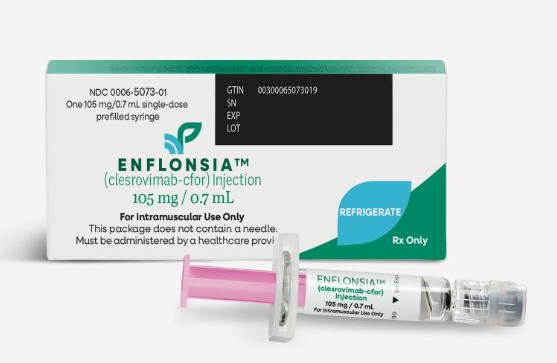Story Highlights
- Unresolved inflammation is common to many chronic conditions and autoimmune disorders including cancer, diabetes type 2, rheumatoid arthritis, multiple sclerosis and digestive disorders, among many others.
- Intermittent fasting (IF), a nutrition plan in which food intake is severely curtailed either by certain days of the week or for specific hours of every day, is a popular anti-inflammatory practice that has increasing support from the scientific community.
- Evidence shows that giving the body’s cells a chance to rest from the work of digesting triggers benefits ranging from cell regeneration to improvements in the ability to resolve many health problems.
Inflammation is a normal, healthy immune system response to a challenge, from a pathogenic microbe, injury or vaccination. Chronic inflammation can result when conditions in the body do not allow a normal inflammatory response to resolve as it should, triggering any number of serious health problems, from cancer to diabetes to rheumatoid arthritis and lupus. There are several strategies being used to reduce chronic inflammation in the body, whether or not it is linked to a specific disease or disorder. Anti-inflammatory medications, dietary supplements, and lifestyle changes, including detoxification, exercise, diet and sleep can help address chronic inflammation in the body.1
One anti-inflammatory tactic gaining both in popularity and being anchored with more scientific evidence is intermittent fasting (IF). Unlike anti-inflammatory diets that restrict certain types of foods (fried and gluten-containing foods, sugar-sweetened drinks, refined carbohydrates, red meats) and promote others (olive oil, green leafy vegetables, nuts and seeds, fatty fish),2 IF approaches food intake from another angle: timing of food consumption.
Principles of Intermittent Fasting
In ancient times and throughout much of human history, fasting was an accepted part of most lives. Food was not always plentiful, or even available. In modern times and for most of the developed world, where obesity and chronic diseases are rampant, not only is food often plentiful and easily obtainable, but it also bombards our systems with a host of unhealthy components like gluten, processed fats and sugars, preservatives, pesticides and hormones, which our ancestors did not have to process.3 As one of the building blocks of our current-day health issues, including widespread obesity, fasting IF is not new. It has a longstanding place in many religious practices and has been successfully used for detoxification and weight loss. Acknowledgment of the benefits of IF by mainstream science, however, is relatively new.
The potential health benefits attributed to IF include improvements in cholesterol levels, stabilized blood sugar and prevention of type 2 diabetes, a healthier brain, support for cancer therapies, weight control and reduced inflammation, not to mention a longer lifespan and many other benefits.4 Recent research indicates that IF may be an effective tool to reverse the chronic inflammation, which is at the root of most autoimmune disorders,5 including neurodegenerative disorders such as Alzheimer’s and Parkinson’s.6
Scientific Basis for Health Benefits of IF
The basic premise of IF is that the body benefits from a long break from the work of digesting. Fasting gives the body time to regenerate at the cellular level.7
Part of that process is the release of insulin, which helps cells in the body convert sugar (primarily glucose) into usable energy. If the glucose isn’t needed right away, the insulin facilitates storage of the excess glucose in fat cells. In the absence of food, no insulin is released, so the fat cells, with their stored glycogen, are accessed for energy instead, which can lead to weight loss and also activates various signal pathways throughout the body, including those that help improve the ability of cells to deal with stress and resist disease.8
Neurobiologist Mark Mattson, PhD, recently retired from the National Institutes of Health, explains that, “every time you eat, glucose is stored in your liver as glycogen, which takes about 10 to 12 hours to be depleted. After the glycogen is used up, your body starts burning fats, which are converted to ketone bodies, acidic chemicals used by neurons as energy. Ketones promote positive changes in the structure of synapses important for learning, memory, and overall brain health. But if you eat three meals a day with snacks between, your body doesn’t have the chance to deplete the glycogen stores in your liver, and the ketones aren’t produced.”9
This process may explain the potential impact of IF on cancer prevention or treatment. Dr. Mattson, who has studied IF since the 1990s, particularly as it affects the brain and aging, explains that cancer cells cannot access ketones for their energy but rely solely on glucose. He says, “The idea is if you have to have a patient when they’re getting chemo or radiation, which are very harsh on cells, including your normal cells, that if the person has low glucose and ketones are up, the cancer cells will be more vulnerable to being killed by the drugs or radiation. Since the normal cells do use ketones, and because the intermittent fasting protects them against stress, the side effects of the treatment may be less.”10
This principle is demonstrated in an epidemiologic study conducted by researchers at the University of California, San Diego. Of 2,400 women with early-stage breast cancer who provided information on their dietary habits, women who fasted for 13 hours nightly had a 26 per cent lower risk of recurrence of cancer over seven years compared with the control group.11
Research Shows Promise in Many Disorders
Much of the scientific research into the benefits of IF are in animal studies, but crossing over to human trials is showing promise in a number of areas.
For example, laboratory studies in mice with symptoms similar to multiple sclerosis (MS) have shown that “intermittent fasting enriched gut bacteria in mice, and reduced MS-like symptoms.” Looking to replicate the results in humans, researchers from that trial found that intermittent fasting in a small sample of 16 patients with relapsing MS reduced their blood levels of inflammatory molecules and altered their gut bacteria in ways that were similar to what they had seen in the laboratory animals. They are now undertaking a slightly larger clinical study of 40 people with MS to compare intermittent fasting (defined for this study as “eating no more than 500 calories per day for two days per week”) to a group eating their usual diet.12
A growing body of data suggests similar benefits for other inflammation-based disorders such as rheumatoid arthritis, inflammatory bowel disease, colitis and other digestive disorders, as well as diabetes, high blood pressure and pain syndromes such as migraines and osteoarthritis.13 An early proponent of the health benefits of intermittent fasting, Dr. Joseph Mercola lists 22 IF benefits, with the top 10 being:14
- Promotes insulin sensitivity
- Promotes leptin sensitivity
- Normalizes ghrelin levels to reduce hunger
- Improves blood sugar management
- Lowers triglyceride levels
- Increases human growth hormone (HGH) production
- Suppresses inflammation and reduce oxidative damage
- Upregulates autophagy and mitophagy, natural cleansing processes
- Boosts fat burning and improves metabolic efficiency
- Prevents, reverses or slows progression of Type 2 diabetes
Variations on the IF Strategy
IF is more of a guiding principal than a specific set of rules so the approach can be adapted to individual preferences, but there are a few popular methods. Some people practice the “5:2” plan, keeping to their usual meal pattern for five days and fasting, or consuming very few calories, for the other two days. Others consume all daily food during a 6- to 8-hour window, fasting the rest of the hours in each day. Still another approach is the “one meal a day” plan, where people eat one meal during a given hour of the day and fast the rest of the time.15
The idea is to give the body a period of sustained rest from digestion. Dr. Andreas Michalsen illustrates a relatively easy approach to IF, recommending fasting for at least 14 hours per day. He points out that since we already fast during sleep, it is relatively straightforward to add time to both ends of nightly (or daily) rest:
If you sleep from 11 pm to 7 am, you’ve already fasted for eight hours. Now you only need another six. It’s healthy to avoid eating late in the evening to let your body burn energy from food rather than store it, so if you eat dinner by 7 pm, that’s another four hours. For breakfast, you can limit yourself to coffee or tea (maybe with a small piece of fruit) and make lunch your first proper meal. By that time, you’re clearly beyond the 14 hours and don’t need to restrain yourself: You can eat until you are full.16
Dr. Michalsen also suggests turning upside down the old adage that we should, “Eat breakfast like a king, lunch like a prince and supper like a pauper.” He says scientific evidence for “the glory of breakfast is scarce,” and that, “Instead of breakfast, we should eat lunch like kings.”
References:
1 Petrucci K. 7 Ways To Reduce Chronic Inflammation That Have Nothing To Do With Diet. MindBodyGreen.
2 Harvard Women’s Health Watch. Foods That Fight Inflammation. Harvard Health Publishing Nov. 7, 2018.
3 Dalton T. Intermittent Fasting Benefits for Autoimmune Disorders. Healthtide 2018.
4 Pattillo A. How Intermittent Fasting Could Help You Live Longer and Better. Inverse July 18, 2019.
5 See Footnote 3.
6 Sugarman J. Are There Any Proven Benefits to Fasting? Johns Hopkins Health Review Spring/Summer 2016.
7 Ibid.
8 See Footnote 4.
9 See Footnote 6.
10 See Footnote 4.
11 Michalsen A. The Fasting Cure Is No Fad. The Wall Street Journal Aug. 1, 2019.
12 Intermittent Fasting Changes Gut Bacteria and Reduces MS-Like Symptoms in Mice. National MS Society July 12, 2018.
13 See Footnote 11.
14 Mercola J. Top 22 Intermittent Fasting Benefits. Mercola Newsletter Jan. 18, 2019.
15 See Footnote 4.
16 See Footnote 11.













3 Responses
So glad you wrote this. I like the example you give for the 14 hour fast. I’ve read others and they were not conducive to my living schedule. I’ve read that (after the melatonin overnight) the cortisol peaks one hour after rising in the am. So I created a fast for myself. It differs from yours by stopping eating by 5PM (or 6 depending) and having breakfast by 8am. Because I just cannot skip breakfast, which is usually a coconut oil, protein smoothie powder, and ashwaganda powder 10 oz Coffee, with 2 steamed egg yolks (for the nutrition), and 2 slices of lamb bacon. (I cannot digest the egg whites.) What if I get hungry around 8pm, glass of water, cup of green tea, or a minor ‘cheat’.
I found that if I fast until lunch, then I must eat again around 7-8 pm. No avoiding that. Don’t like to eat at night. So, I begin my eating when the cortisol requests food, and stop in late aftn/early evening as the digestion slows down then. So I let it rest. I think everyone has a different/personal metabolism schedule that needs to be recognized and followed. I only gain weight when I go off this schedule (around holidays when it is near impossible to follow any schedule).
Intermittent fasting is not recommended for those with adrenal/thyroid issues, as the problem in these cases is not having ENOUGH glycogen stored in the liver.
Interesting article – Thanks!